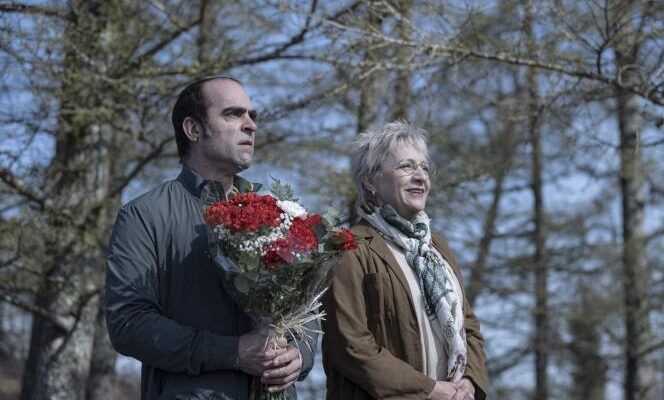The wound is still there, deep, and ETA’s definitive renunciation in 2011 of the armed struggle was not enough to erase half a century of civil war in the Spanish Basque Country. The San Sebastian International Film Festival, the SSIFF, which is held there from September 17 to 25, once again bears witness to this. After the series Patria, by Aitor Gabilondo (HBO) that we discovered there in 2020, several films are still coming back for this new edition on the conflict, and the difficulty there is in reconciling ghosts.
Evidenced by the interminable ovation that followed the screening in the great hall of the Kursaal of Maixabel, Iciar Bollain, a biopic on the wife of the socialist Juan Mari Jauregui assassinated in 2000, who was the first to agree to meet the murderers in a desire for reconciliation.
San Sebastian, aka Donostia in Basque, its changing skies, its shell-shaped bay. “The most beautiful city in Spain”, you will slip, which Franco had made his winter residence. Paradoxical seaside resort and capital of a bloody war. Like the protagonists of Maixabel, the city and its festival work on resilience. Born sixty-nine years ago under the dictatorship, then a small confidential thing, the SSIFF became in the 1980s an event of international scope (“The best of festivals, for cinema and for food”, according to Bertrand Tavernier) before more or less disappearing from media radars.
José Luis Rebordinos, director of the San Sebastián Festival: “With us, the mixture of classical production with platforms has been done well and has opened up a lot of opportunities”
Festivals live and die. That of San Sebastián has resisted the pandemic – it is, along with that of Venice, the only one that has been able to maintain an edition in 2020 – but we have still seen it develop since. In the jargon of the trade, it is part of what are called category B festivals, just behind the big ones: Cannes, Venice, Berlin or Toronto. But while the Rome Festival is today the shadow of itself, that Locarno is losing momentum, San Sebastián seems to benefit from a new dynamic which is that of the Spanish market.
While the latter weighed nothing twenty years ago, it is indeed now carving out croupiers in the Italian film industry. Spain, the land of the new promise? “Theoretically, with the Covid-19 crisis, it should be a very bad time for Spanish cinema, but paradoxically it’s just the opposite happening, the industry is on the contrary much stronger than there are twenty years, explains José Luis Rebordinos, director of the San Sebastian Festival. Why ? Because, with us, the mixture of classic production with platforms went well and opened up a lot of opportunities. The only problem currently remains distribution, cinemas… ” MK2 was not mistaken, which after investing in the Cinésur network, bought a new venue in Madrid last week…
You have 40.77% of this article left to read. The rest is for subscribers only.
